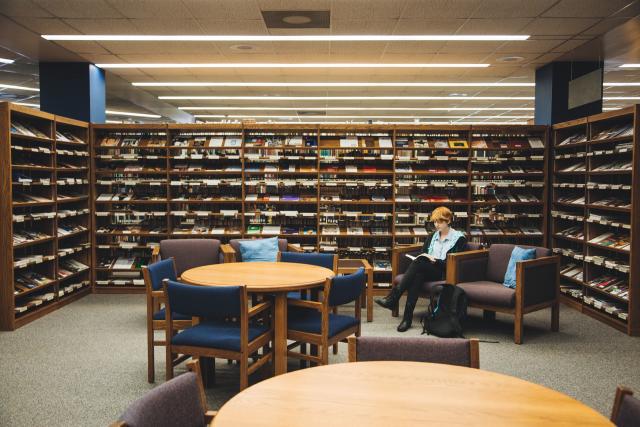![]()
Only 19 percent of Americans ages 16-29 said their library closing would have a major impact on them.
Despite that statistic, 50 percent of this age group stated that they’ve used a library in the past year (3 percent more than Americans 30 years and over) and 36 percent have used a library website in the past year (8 percent more than Americans 30 years and over).
Pew Research published the library study on Sept. 10. The study highlighted the significance of libraries and their use across the nation.
West Loveland, a graduate student in marriage and family counseling at John Brown University said that he sees technology as a big reason why many people wouldn’t care if their local libraries closed.
“I feel like electronics are making it easier for information to be made readily available to people,” he said.
Loveland also said he believes that the lower library attendance for the 30-and-over group is largely due to their usual availability times.
“It’s tougher for adults to go to the library anymore. Hours are a factor. If you work nine to five, you probably just want to go home and relax.”
Brent Swearingen, the instructional services librarian at John Brown University, said he thinks there are definitely other reasons for the low statistics.
He believes one of the reasons why 30-and-over usage is down is because people don’t realize all of the possible resources in libraries.
“One connection that people don’t make is that the online library is part of the library as well,” said Swearingen. “We could probably do better marketing as well, such as emphasizing the use of computers to people who can’t afford internet. The thing is that libraries are free.”
For the 16-29 age demographic, Swearingen said that school might have something to do with the healthy numbers, speaking of his own library.
“In academic libraries, our usage has gone up,” he said.
“Public, academic and school libraries are all very different animals,” said Mary Habermas, director of John Brown University’s library. “Academic libraries are the best place for students to centralize resources, facilitate research and are also a unique place on campus for study and work.”
Swearingen discussed several reasons why younger people are visiting and using libraries more.
“First of all, that’s the Harry Potter generation,” he said. “They’ve grown up with high-quality youth literature, which wasn’t really the case before the 2000s. Second, that generation has grown up during a recession. Libraries tend to be counter-cyclical to the economy. It’s free entertainment. It’s possible that they started using the library more due to the economy.”
Habermas said that libraries aren’t going anywhere.
“I see [academic libraries] continuing to have a central role in the universities. I think public libraries will continue to have a place in the community for resources as a meeting place. I think that libraries will not just survive. They will thrive.”





